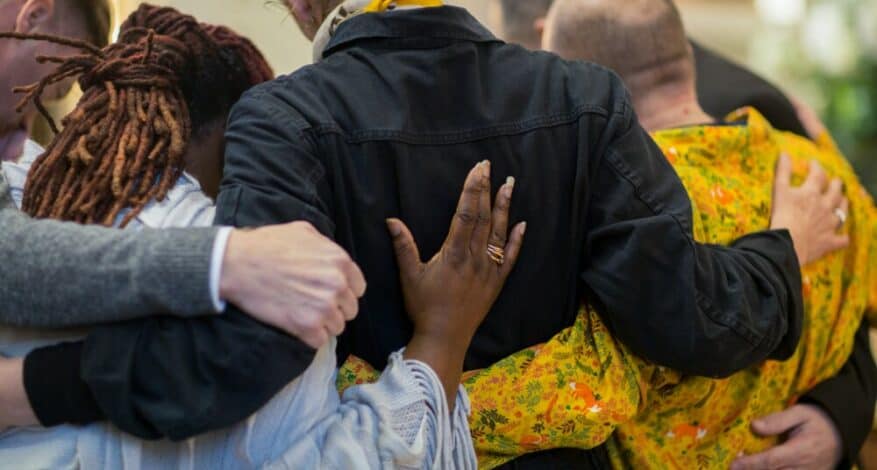Losing a Loved One to Intimate Partner Abuse
If you’re reading this and have lost someone to intimate partner abuse, we’re so sorry for your loss.
Friends and families of domestic homicide victims often self-blame and sometimes experience survivor’s guilt. Darlene Thomas, our executive director, has supported countless friends and family through grief.
“It’s normal for families to question and hold themselves responsible,” shares Darlene. “But you’re not to blame. The only person to blame is the abuser.”
Stages of Grief
Do you feel shocked or angry right now? Maybe you’re questioning how this happened to someone you love.
Most friends and family will experience these standard stages of grief, but the journey is not always linear:
Denial
Anger
Bargaining
Depression
Acceptance
Feeling stuck in one stage or bouncing around the stages happens often.
This article from the Cleveland Clinic is a good place to start if you’re interested in reading more about the stages of grief.
Victim Connect considers grief reactions after homicide and helpful ways to heal in this article.
Power and Control Wheel
After some time has passed, exploring the dynamics of intimate partner abuse can help friends and families navigate the complexities of grief.
The Power and Control Wheel, developed many years ago by advocates in Minnesota, provides examples of the ways abuse affected the life of your loved one. Some of the examples leave visible marks, but most are purposely hidden and difficult to recognize.
It’s important to remember that many tactics of power and control are meant to manipulate and confuse people who supported the victim.
Your voice matters.
Sharing information and raising awareness can be helpful in the healing journeys of friends and family.
This link from the CDC discusses types of abuse, how common intimate partner abuse is, other statistics, and how to prevent it – like understanding and promoting healthy relationships.
It’s okay to be more private about your loss, too. Public discussions can be re-traumatizing, especially for those of us who identify as introverts. Talking about your grief with trusted confidants is helpful, too.
Other Resources
The Kentucky Center for Grieving Children & Families offers support groups, training in youth bereavement, and hosts a weekend camp for children who have experienced loss.
The US Department of Justice has this handbook titled Coping after a Homicide. It covers reactions, helping children cope with grief, and the criminal justice system.


